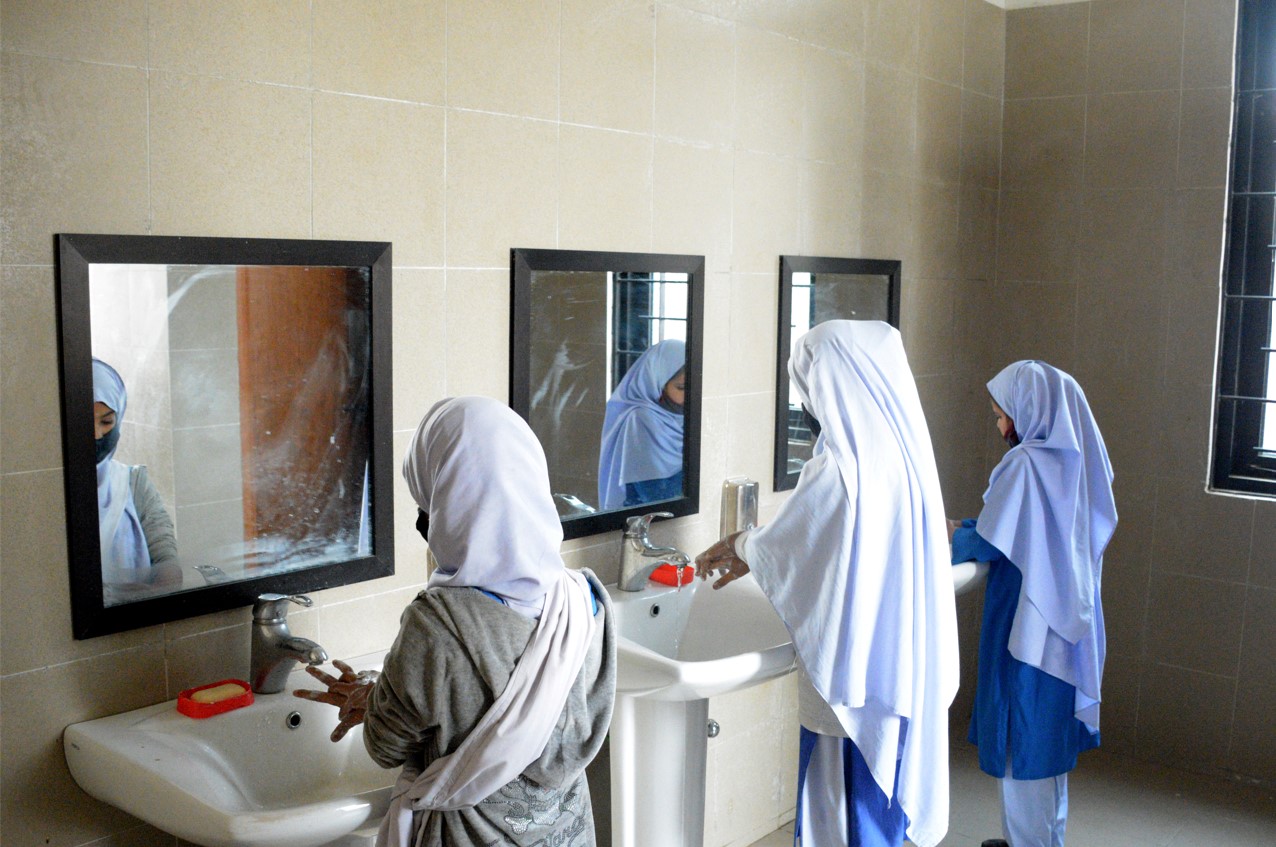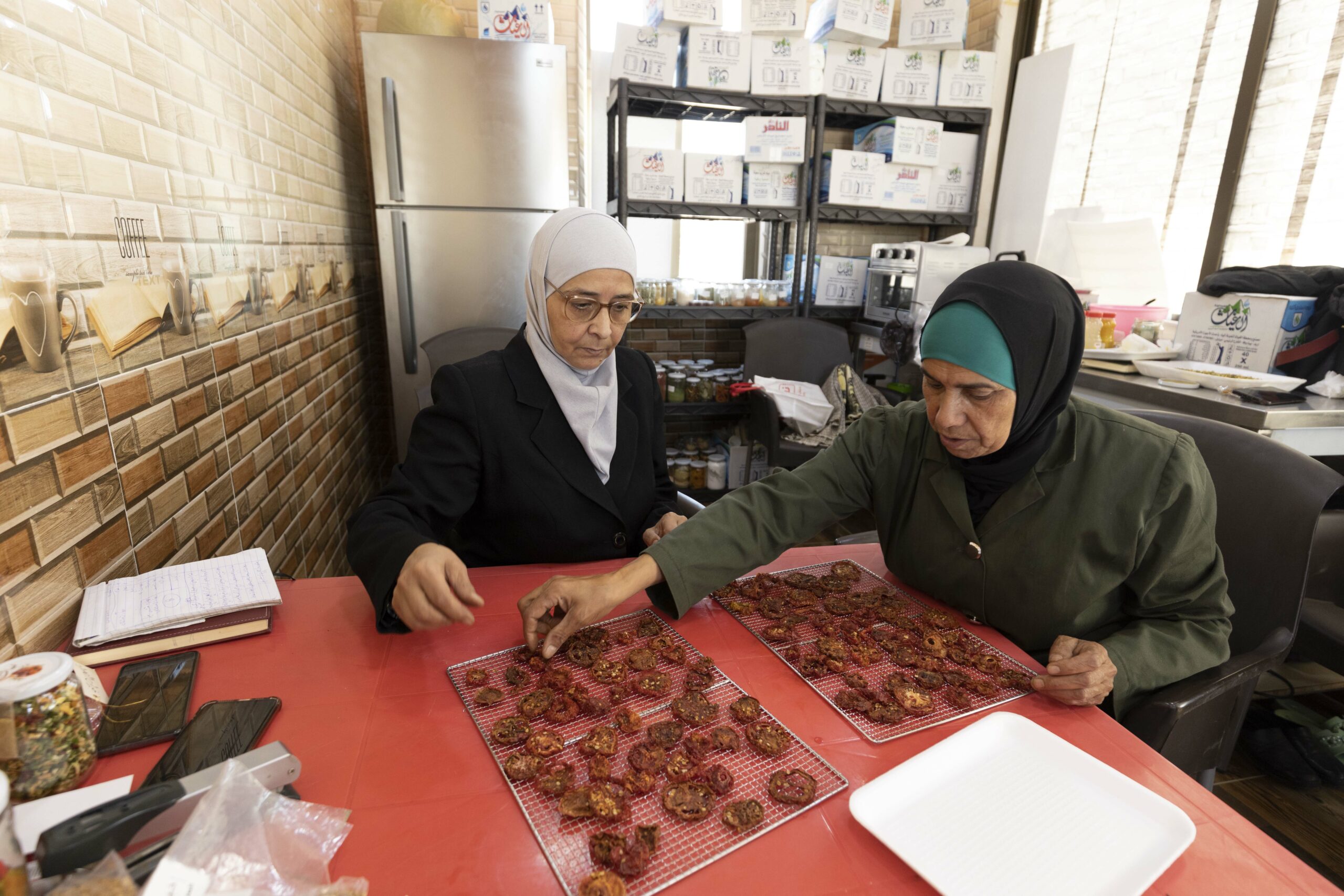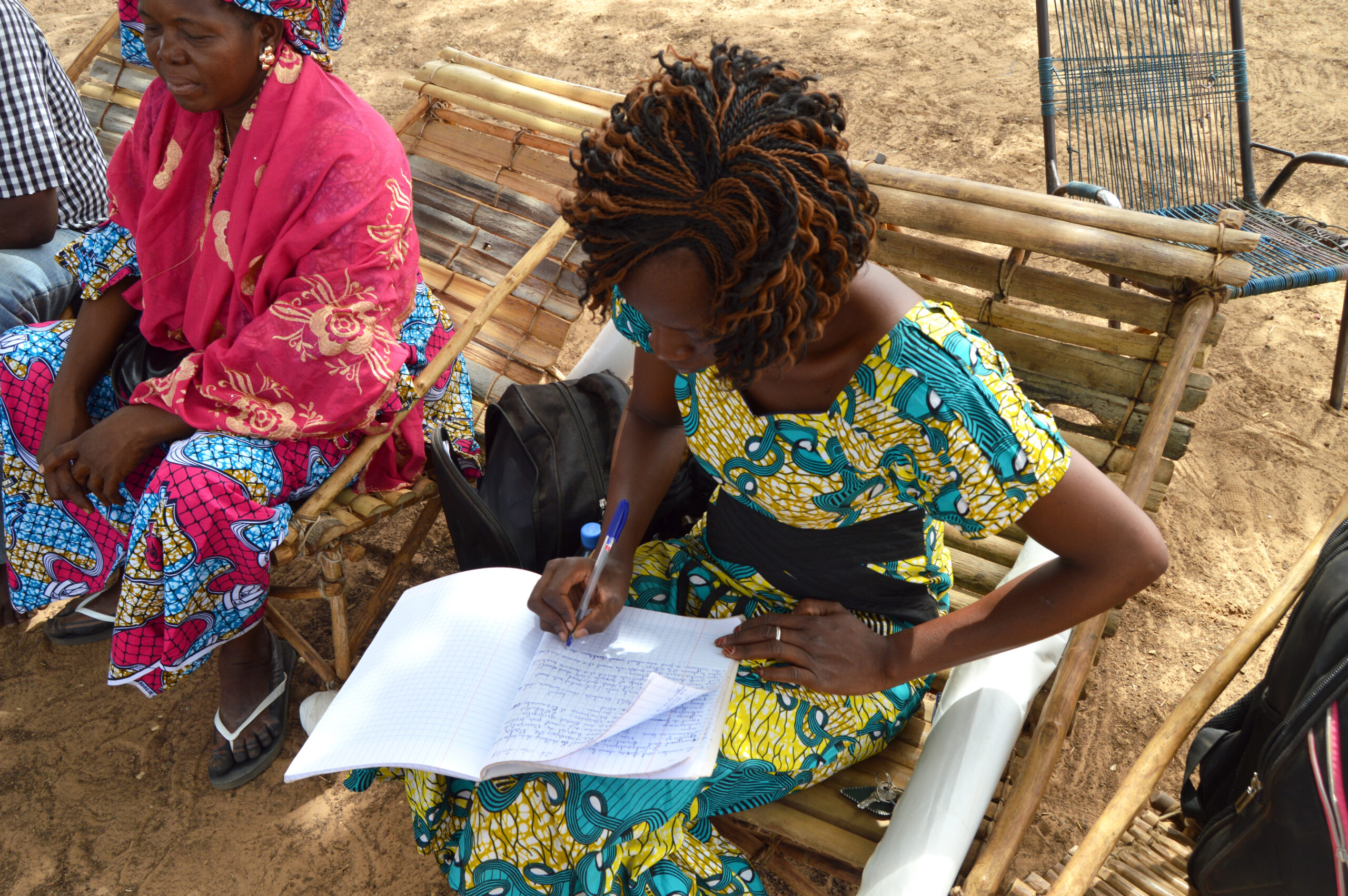As part of our efforts to support recovery and build resilience, grant mechanisms can help put decisions in the hands of communities, empowering them to invest in solutions they believe in. In the past five years, we’ve managed 1,370 grants worth more than $37 million.
Ranging from in-kind support for individuals to sub-awards to civil society organizations, these funds target local needs—whether it is changing how students learn; strengthening public services and livelihoods; or increasing engagement of marginalized groups. Small grants can make a big difference as communities work to stabilize, recover, and build a stronger future.
Pakistan: Small grants for schools
In Pakistan, the nine-year, USAID-funded Community Mobilization Program engaged local school management committees as a primary platform for community involvement and a driving force to improve education in Sindh. With our team’s support, committees implemented 420 small grants that they identified as priorities to improve their schools. These small investments had a huge impact, allowing schools to provide facilities such as functioning toilets, electrical fixtures, and drinking water, as well as fund extracurricular activities and events. With teachers, school administrators, parents, students, and tribal members on the committees, the community was well represented in every decision.

Small grants to schools in Sindh, Pakistan, funded improvements and additions in schools such as washrooms, boundary walls, drinking water systems, and new furniture.
Jordan & Iraq: Supporting home-based and small businesses
We have been leading efforts to create sustainable livelihoods for home-based and small business owners in Jordan and Iraq. Entrepreneurs participating in our Smart DESERT (AFD), Jordan Livelihoods Project (UNHCR), and Achieving Measurable Access to Livelihoods (GIZ GmBH) programs have received in-kind support after attending comprehensive business training. Tailored toolkits include supplies and equipment that the entrepreneurs themselves have requested. Participants in Iraq, mostly recent returnees who are integrating back into their communities, had the option of applying for support for their existing businesses or new ideas, or for vocational training that will help them find a place in the job market. In either case, toolkits were personalized, whether they needed a computer and office supplies for their shop or a set of welding tools for their newfound career.
One Iraqi business owner shared, “The equipment I received was essential in helping me start my project and start earning money to expand and buy more capital.”

Hanan and Aysha are business owners from Jordan who received a dehydrator and a refrigerator from Smart DESERT so they can sell their food products year-round.
Mali: Community resiliency grants for agricultural livelihoods
With climate change threatening agriculture and livelihoods in Mali, we worked with communities to fund sustainable income-generating activities. For the DFID Waati Yelema Labenw program, we administered 308 small grants worth 1-2.5 million CFA francs each. These community resiliency grants helped vulnerable people in Mali cope with the effects of climate change by deciding what to fund, such as equipment for processing food products. Communities invested in a range of approaches, including building fattening systems, grain banks, threshing machines, and hullers. This support enabled them to improve their incomes, strengthen food security, and increase access to basic social services. We also worked with each grant committee to establish regular record-keeping and monthly meetings for better transparency and accountability.
Fadjigui, a farmer, said, “We had the opportunity to express our needs, and I was even present on the day of the development of the program of activities.”

In Mali, through the DFID-funded Waati Yelema Labenw program, we administered 308 small grants to communities to help them cope with the effects of climate change.
Syria: Strengthening markets and infrastructure through grants
Essential Services, Good Governance, and Economic Recovery program (part of the Building Resilient and Inclusive Communities in Conflict (BRICC) IDIQ), funded by USAID, is strengthening communities in Northeast Syria by prioritizing local needs through grant management. As communities rebuild amidst conflict, grants to local authorities are supporting the rehabilitation of health facilities and water infrastructure, electricity, and other essential services. Currently, one of the many grants our team manages supports employment and decent work for women and youth in Raqqa and Deir ez-Zor. Focus groups and interviews with Syrians, including returnees, identified a gap in the community’s understanding of their rights as workers. This grant to a local organization pays for vocational trainings and awareness sessions on labor rights. The goal is to improve working conditions while supporting local community members, including women and youth, to find safe, fair jobs that will strengthen the local labor market and foster stability.



